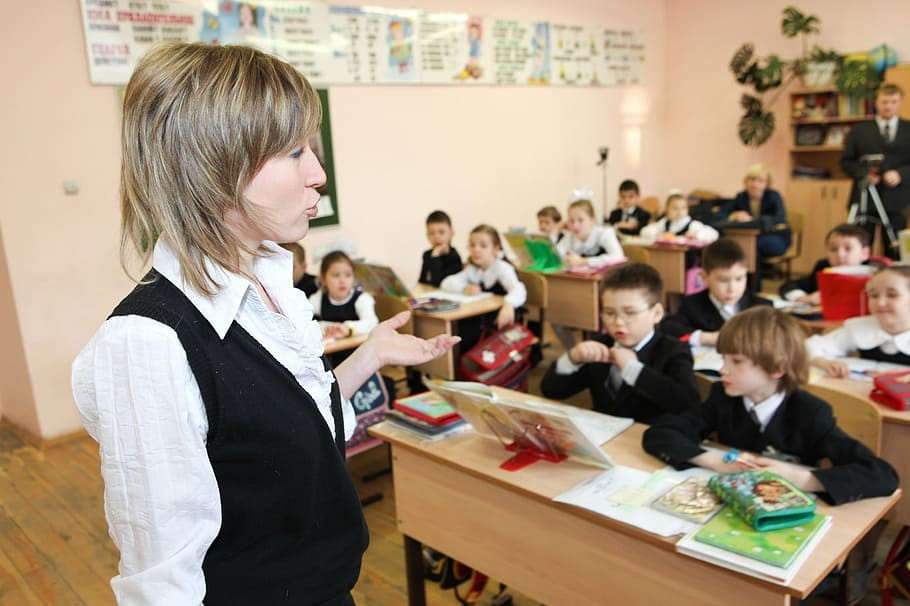29,007 school principals (out of 45,500) participated in the consultation conducted from November 13 to December 1, 2019 at the initiative of the Ministry.
As part of the work on the evolution of the functions of school principals and following the suicide of a school principal, the Ministry initiated a consultation with professionals and union organizations.
In parallel with this work, the Ministry wished to consult widely with public and private school principals in order to obtain their opinion and thus establish an inventory of the conditions in which they practise their profession, their difficulties and their expectations.
29,007 school principals (out of 45,500) took part in the consultation conducted from 13 November to 1 December 2019.
Among these participants, the relative majority have a quarter discharge (41%) and 11% have a full discharge (the rate reaches 30 and 37% in PWR and PWR+). 86% of the directors have chosen to exercise this function. Nearly one in two have been in the national education system for more than 20 years (48%) and 38% have more than 10 years’ seniority.
1- How do school principals perceive their profession?
A versatile and responsible job
To characterize their profession, directors emphasize two words: versatility (25%) and responsibility (22%). They then cite interpersonal skills (14%), availability and administrative skills (both at 13%). Some negative facets of the job appear with the terms work overload (12%), time pressure (10%), stress and fatigue (also 10%).
A time-consuming job
Nearly half of the directors consulted say that they spend between 11 a.m. and 8 p.m. on managerial tasks (46%). 44% spend more than 20 hours a week there. The time devoted to the function is more important for principals of elementary schools, schools in REP or REP+ and increases with the size of the school being run.
These functions encroach on their teaching time. Indeed, 9 out of 10 principals report that when they are in class they are often interrupted to respond to a request related to their principal function (91%).
A satisfying job with painful aspects where there is a strong need for support
It is the monitoring of individual student situations (76%), administration (75%), relations with parents (68%) and group work (67%) that take up the most time for the principals. Among these tasks, collective monitoring of students and teamwork generate the most satisfaction (66%).
The two dimensions of the job that they find the most strenuous are administrative work (62%) and making the school safe (66%). Ensuring safety in and around the school is an aspect of the job on which they would need support (55%) with individual student follow-up (62%).
2- What are their needs and expectations?
An expectation of relief
Avenues for improving their work were spontaneously mentioned by the participants in the consultation, such as an increase in discharge time (36%), simplification of tasks (27%), human assistance in managing small tasks (20%).
A need for human support
Principals more specifically express a need for human support to manage access to the school outside of school entry or exit hours (52%, especially in schools with more than 220 students: 62% and in REP +: 67%), to respond to telephone calls (48%) and to a lesser extent to handle electronic messages (26%, especially in small schools 51%).
Waiting for training
More than one in two principals feel a need for training in legal knowledge and regulation (54%, this expectation is higher in schools with fewer than 100 students). Only 45% of the participants in the consultation said that they had taken a training module related to their management function since taking office. This rate is only slightly higher among principals with more than 10 years of seniority (47%).
3- What are their relationships with the teams, hierarchy, the municipality?
A recognized authority, exchanges that work well with their partners
A majority of school principals feel their authority is recognized by non-teaching staff (89%), NEIs (82%), educational advisers (82%), elected municipal officials (82%) and teachers (81%, in the smallest schools the rate is lower). Principals also largely testify to the responsiveness of the district teams and municipal services. However, less than half consider school medical services to be responsive (47%).
A desire for involvement
The participants in the consultation would like to be able to take decisions on the use of the 108 annual hours without the presence of pupils within the school (87%) and to benefit from regular meetings to exchange experience with other directors (83%). More than two-thirds of the principals expressed a desire to be involved in the pedagogical steering and development of the actions implemented in their district (68 per cent).
Involvement in teacher evaluation considered less of a priority
On the other hand, involvement in teacher evaluation is less pronounced. In fact, 56% would like to be involved in the evaluation of teachers in their school, only in terms of their contribution to the work of the educational community.
A quarter of principals would like to be involved in the evaluation of teachers in all areas (25%). In the largest schools (40%) and those in REP+ (36%) this wish is higher.
———
The results of this consultation, which have been made public, will feed into the work with the trade unions, which will begin on 14 January. An initial phase will be devoted to the missions and tasks of school principals, in order to identify possible simplifications and deletions. A second session will then focus on the conditions for exercising the profession (administrative assistance, HR support, discharges, etc.).

